A string of large-scale counterfeit production and trading operations has been exposed in recent months, revealing the increasing sophistication and boldness of criminal networks while raising serious alarms about public health and safety.
As Vietnam’s consumer market becomes more diverse, the public now faces a growing threat from what authorities call “high-tech counterfeits” – products so convincingly faked that they exploit consumer trust with polished packaging, celebrity endorsements, and aggressive marketing on social media.
The following cases, recently uncovered by law enforcement agencies, highlight the scale and danger of the counterfeit goods trade in Vietnam.
1. Massive fake cosmetics operation busted in Bac Giang
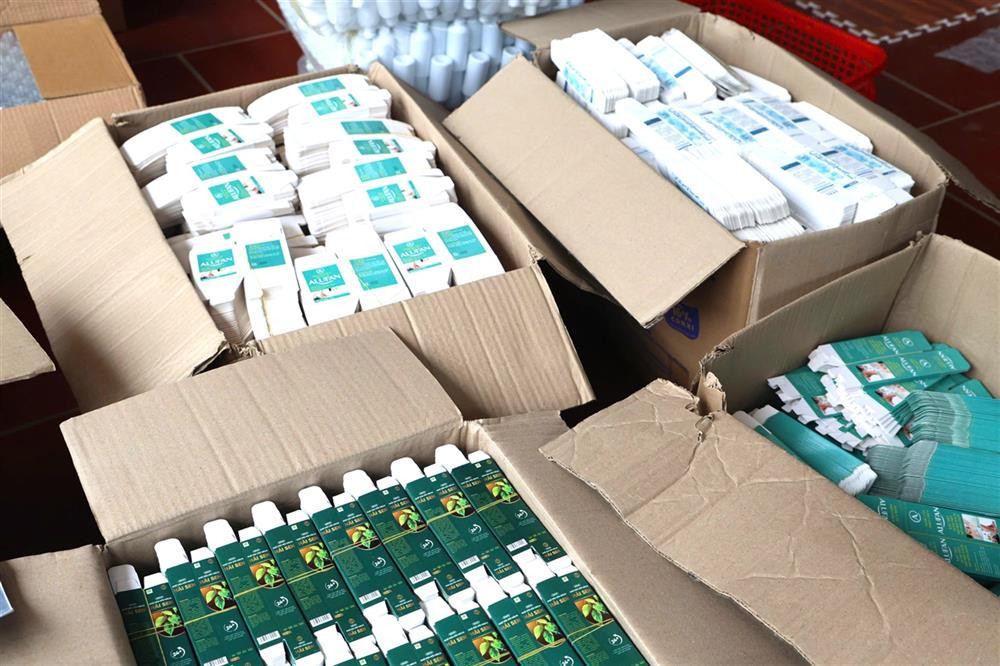
On May 7, the Economic Police Division of Bac Giang Provincial Police, in coordination with local market surveillance forces, dismantled a large counterfeit cosmetics manufacturing site in Dai Lam commune, Lang Giang district. The operation was led by Nguyen Van Khanh.
Investigators found that since late 2024, Khanh had been producing fake cosmetic products to profit from rising consumer demand.
Over 100,000 orders had been sold across various provinces, generating revenues exceeding 6 billion VND (approximately 236,000 USD).
Authorities seized nearly 2,500 finished products across 13 cosmetic lines. The case is under further investigation.
2. Over 100 tons of fake supplements and medical equipment seized in Hanoi
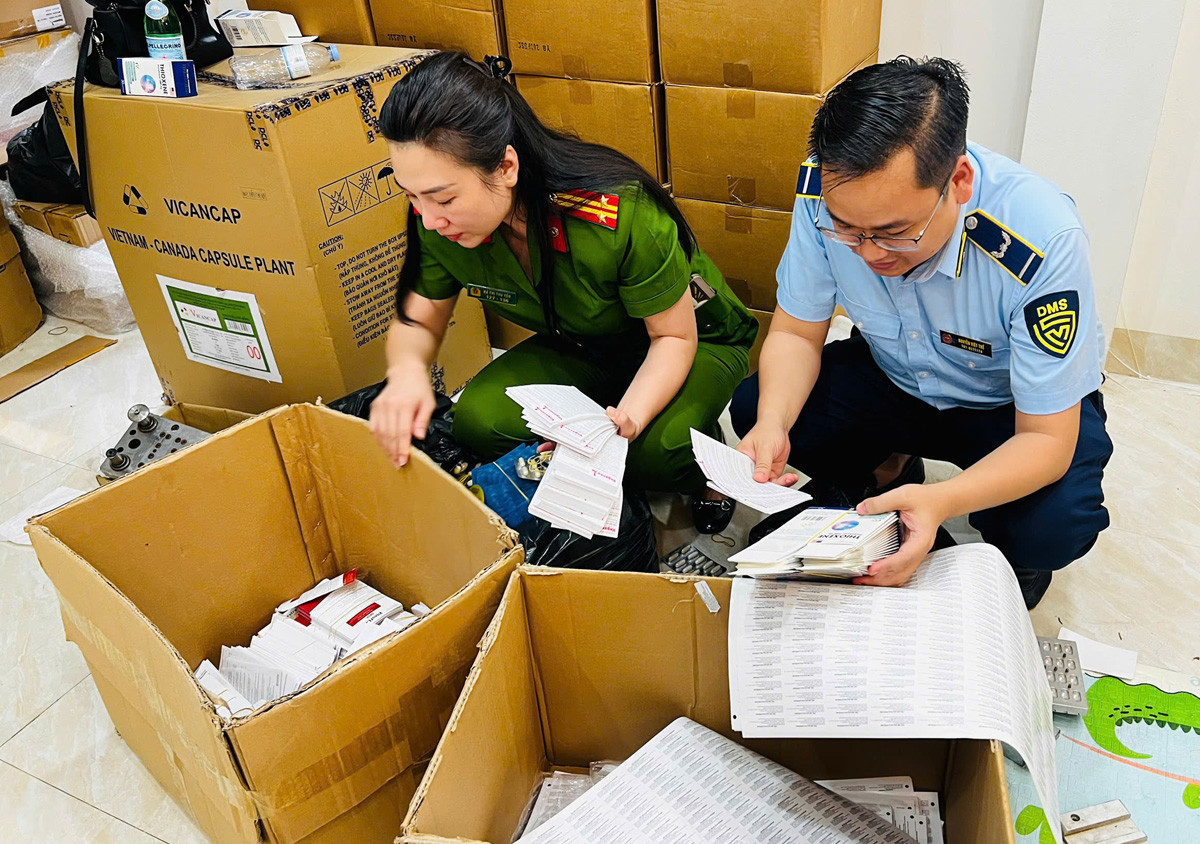
On May 7, 2025, Hanoi police busted a major ring led by Pham Ngoc Tien and his wife Doan Thi Nguyet. Tien, a licensed pharmacist, developed fake formulas using domestic raw materials, hired unqualified workers to mix and package the goods, and falsely marketed them as imports from Spain, France, and the U.S.
The ring operated 17 companies, including 6 for import licensing and the rest for distribution. Police raided nearly 20 locations across 20 provinces and seized more than 100 tons of counterfeit goods, including thousands of boxes and bottles along with packaging machinery and fake labels. Products were distributed to pharmacies and hospitals, posing severe health risks.
3. Over 100 tons of counterfeit dietary supplements smuggled from China
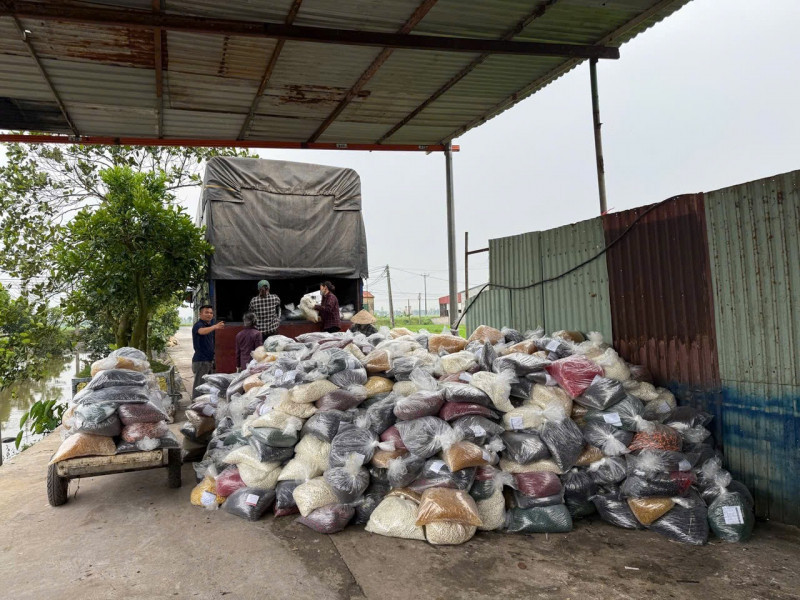
On April 27, 2025, the Ministry of Public Security launched an investigation into a major counterfeit supplement network, seizing over 100 tons of fake health products.
Five people were arrested, including three CEOs: Nguyen Nang Manh (MegaPhaco), Do Manh Hoang (MediPhar), and Khuc Minh Vu (Viet Duc).
Since 2016, they had used multiple companies to produce fake supplements labeled as imports from Europe and the U.S., though most raw materials came from China.
They targeted vulnerable groups like seniors, pregnant women, and children, producing over 900 fake brand names. One company alone recorded over 800 billion VND (over 31 million USD) in sales since 2021.
4. 70,000 liters of fake cooking oil and tons of fake spices uncovered in Phu Tho
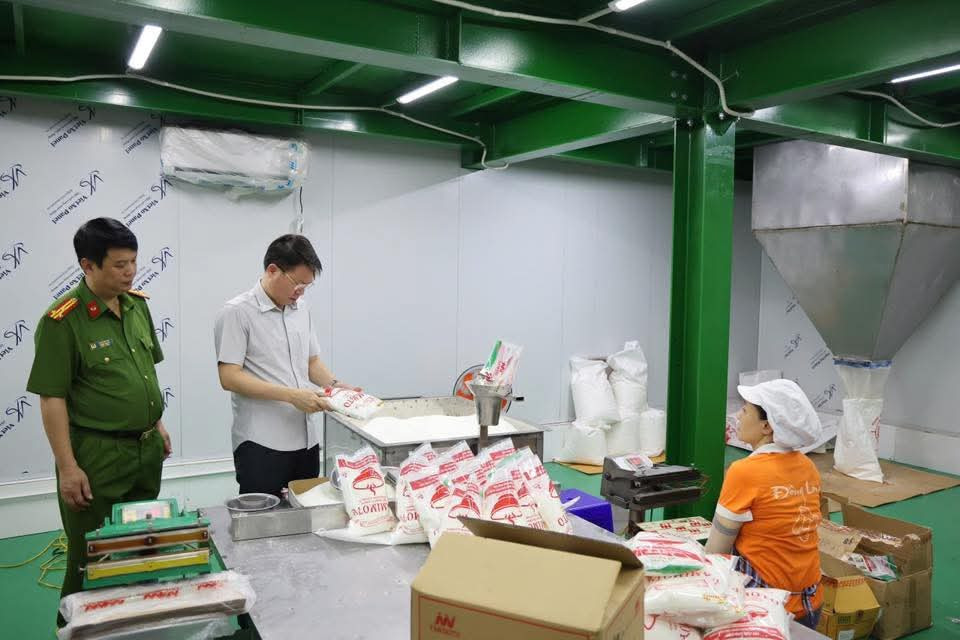
On April 26, 2025, Phu Tho police raided Famimoto Vietnam in Thuy Van Industrial Park and discovered a major counterfeit food production site.
Authorities seized 71,000 liters of fake cooking oil, 40 tons of fake MSG, 22 tons of imitation seasoning granules, and 9 tons of counterfeit flavored salt. Production was done in a closed-loop system with substandard ingredients.
The fake oil and spices were unsafe and mislabeled. The company also deceived consumers through social media and livestream marketing.
5. Major counterfeit pharmaceutical ring dismantled in Thanh Hoa
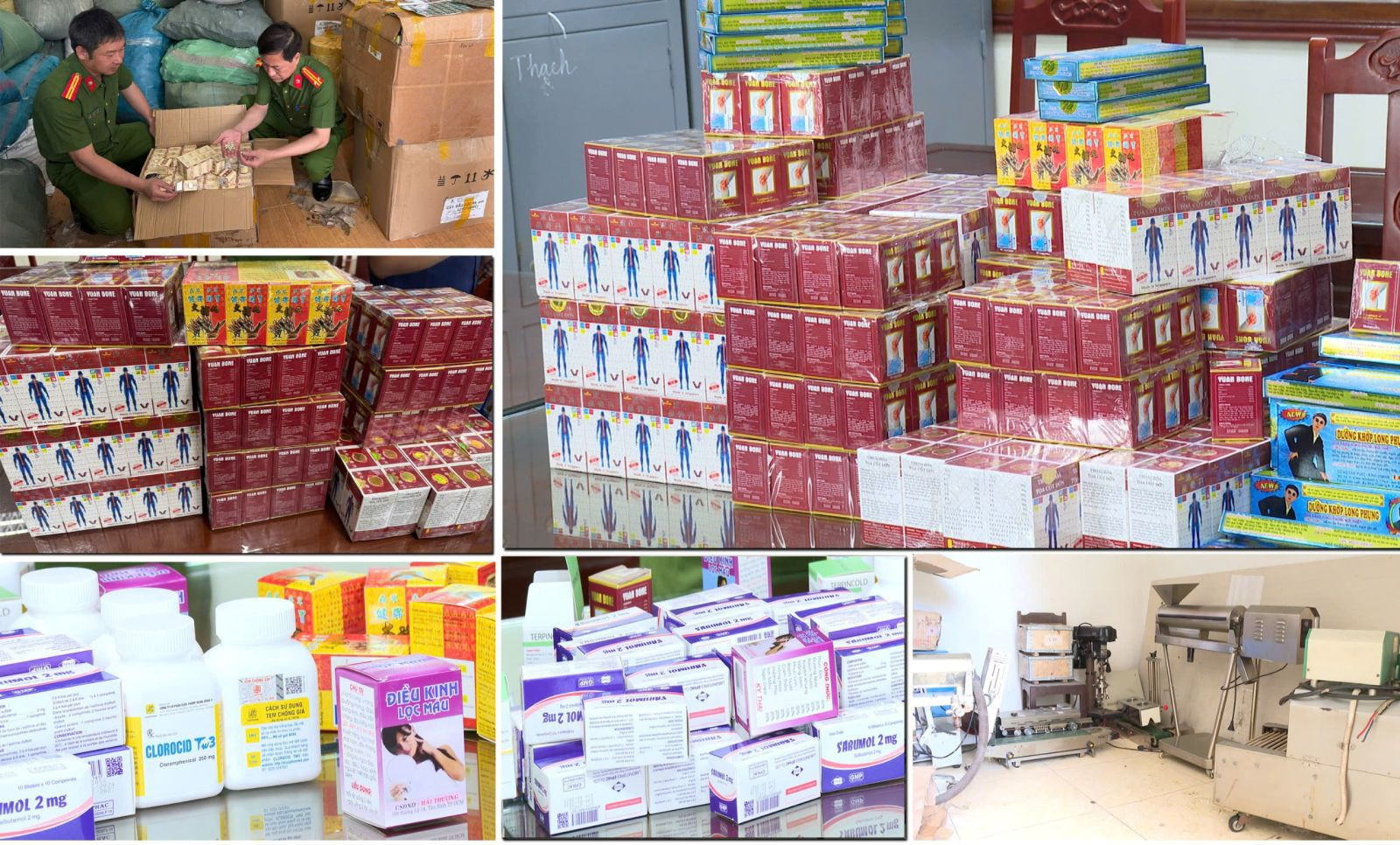
On April 18, 2025, Thanh Hoa police cracked a counterfeit drug ring led by Nguyen Tien Dat that had operated for four years, distributing fake medications nationwide and illegally profiting nearly 200 billion VND (7.9 million USD).
Seized items included popular brands like Tetracycline, Clorocid, and Neo-Codion, as well as bone and joint medications falsely labeled as imports from Hong Kong, Malaysia, and Singapore.
Thousands of boxes were found, including over 2,200 boxes of herbal supplements and over 5,000 boxes of “Mujarhabat Kapsul.” These were often sold without prescriptions, largely through online platforms and informal markets.
6. Nearly 600 fake milk powder brands exposed in Hanoi
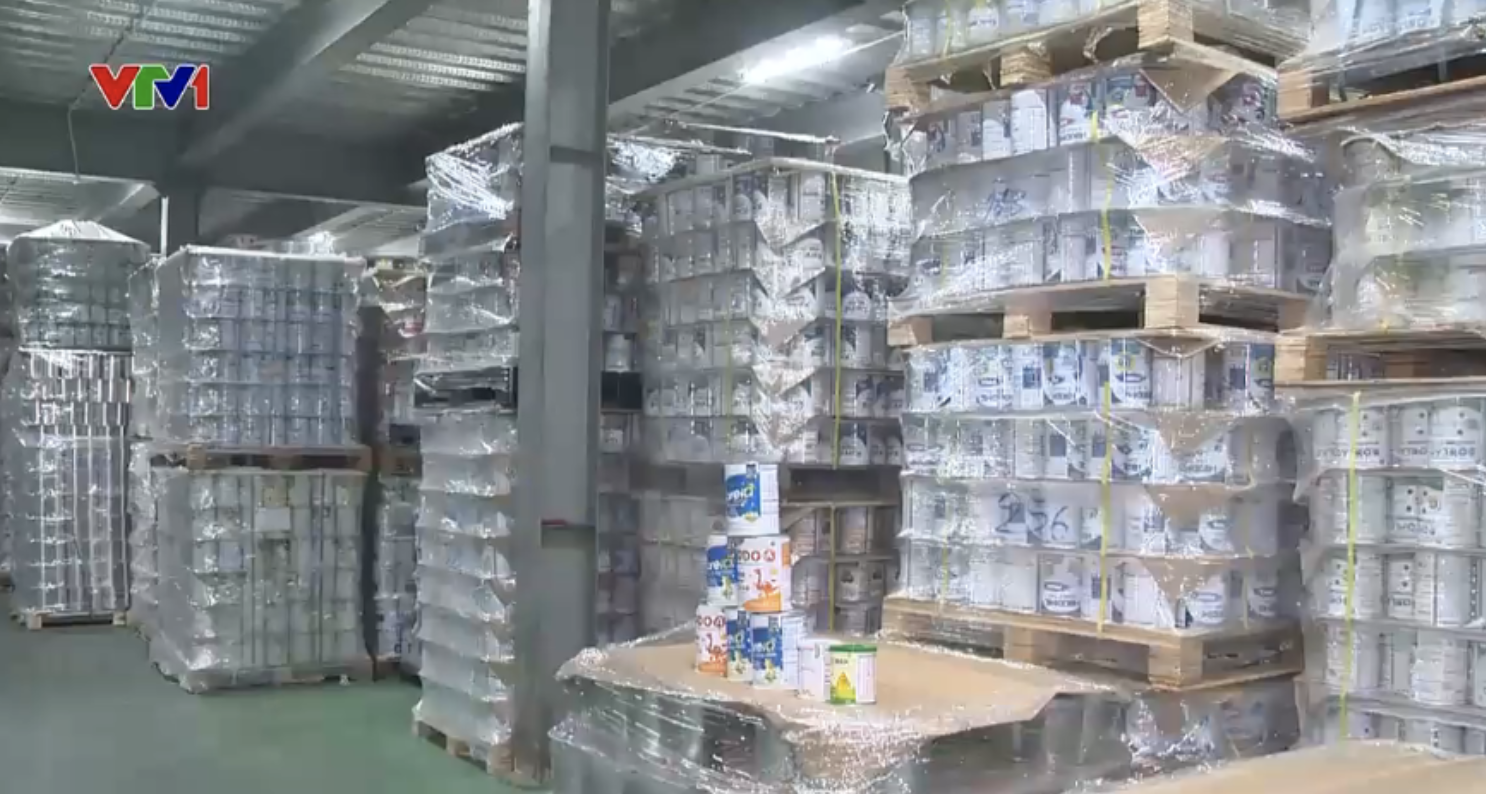
On April 11, 2025, police uncovered a large-scale fake milk powder operation hidden behind two companies: Rance Pharma and Hacofood Group.
These products were marketed as premium nutrition for diabetics, kidney patients, premature infants, and pregnant women, falsely claiming to contain high-grade ingredients like bird’s nest extract and cordyceps.
Testing revealed these were ordinary powders with some nutritional values under 70% of claimed levels. The companies began operating in August 2021 and had created 573 fake brands targeting high-demand health niches.
7. Kera vegetable candy scandal
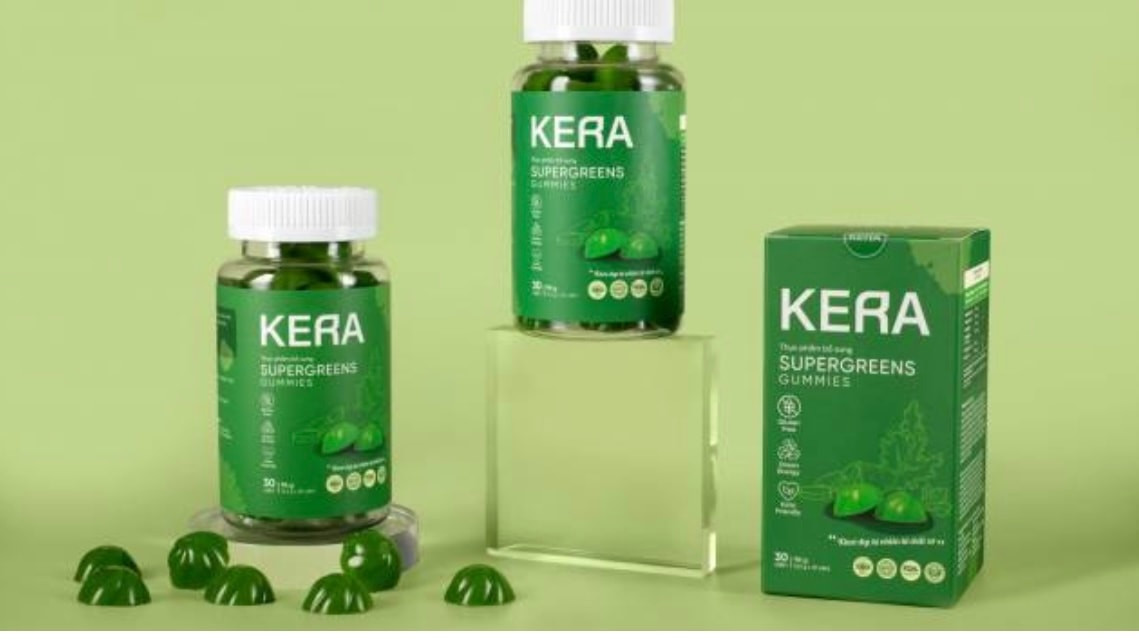
Marketed as a healthy alternative to vegetables and endorsed by influencers like Quang Linh Vlogs, Hang Du Muc, and Miss Grand International Thuy Tien, Kera candy became a viral hit.
On April 3, 2025, the Ministry of Public Security charged CER Group and Asia Life – the makers of Kera – with producing fake food and misleading customers.
Tests showed the actual vegetable powder content was only 0.61–0.75%, compared to the advertised 28%, and the candy contained 33.4% sorbitol, a laxative not listed on the label.
Over 135,000 boxes were sold between December 2024 and March 2025, generating tens of billions of VND in revenue. The scandal outraged the public for using influencers to push potentially harmful products.
Y Nhuy